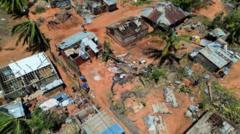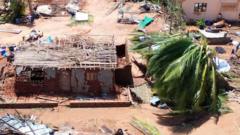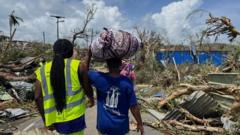As Valencia authorities cope with the aftermath of devastating flash floods, more than 1,000 soldiers have joined rescue operations to assist affected communities amid warnings of continued severe weather.
Flash Flood Catastrophe in Eastern Spain Claims Over 50 Lives

Flash Flood Catastrophe in Eastern Spain Claims Over 50 Lives
A recent wave of severe flash floods in eastern Spain has led to the tragic loss of at least 51 lives, prompting extensive emergency response efforts across the region.
At least 51 people have died following a catastrophic series of flash floods that struck the eastern regions of Spain, including provincial areas of Valencia and Málaga. Local authorities have confirmed the grim death toll, with widespread destruction evident throughout the affected zones.
Heavy rainstorms, which began on Tuesday, rapidly transformed streets into torrent-like rivers, uprooting vehicles and compromising transportation infrastructure, including disrupted rail lines between significant cities. A high-speed train carrying nearly 300 passengers derailed near Málaga, fortunately without injuries reported among the passengers.
Residents in heavily affected areas were observed grappling with the swift currents that snatched away everything in their paths, as thick, muddy water rushed through. Amidst the chaos, police and rescue teams deployed helicopters to evacuate stranded individuals from their homes and vehicles.
In response to the disaster, over 1,000 soldiers from Spain's emergency response units have been mobilized to assist local efforts in recovery and support for the displaced population. To facilitate organized rescue efforts, Spain's central government established a crisis committee.
Meteorologists have warned that the storms are predicted to persist until Thursday, raising concerns among experts about the increasing frequency of such extreme weather events. This incident surfaces against a backdrop of ongoing struggles from recent droughts in Spain, with climate scientists urging for comprehensive discussions on the implications of climate change in relation to these severe weather patterns.






















